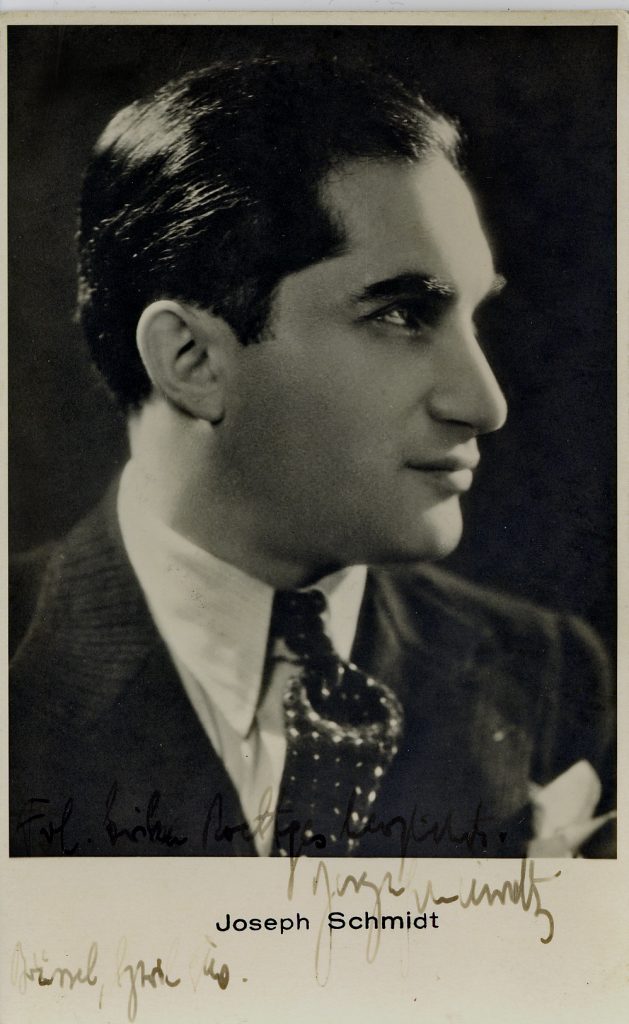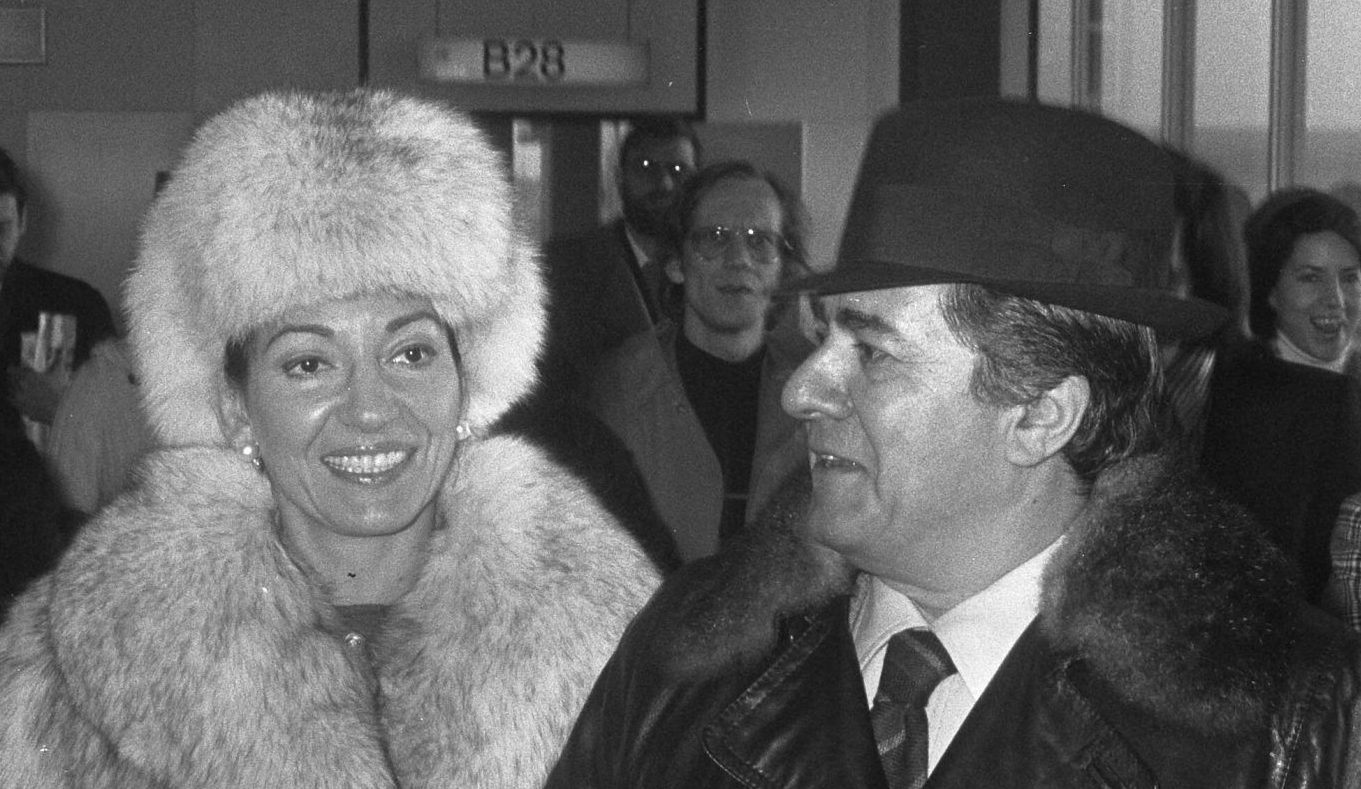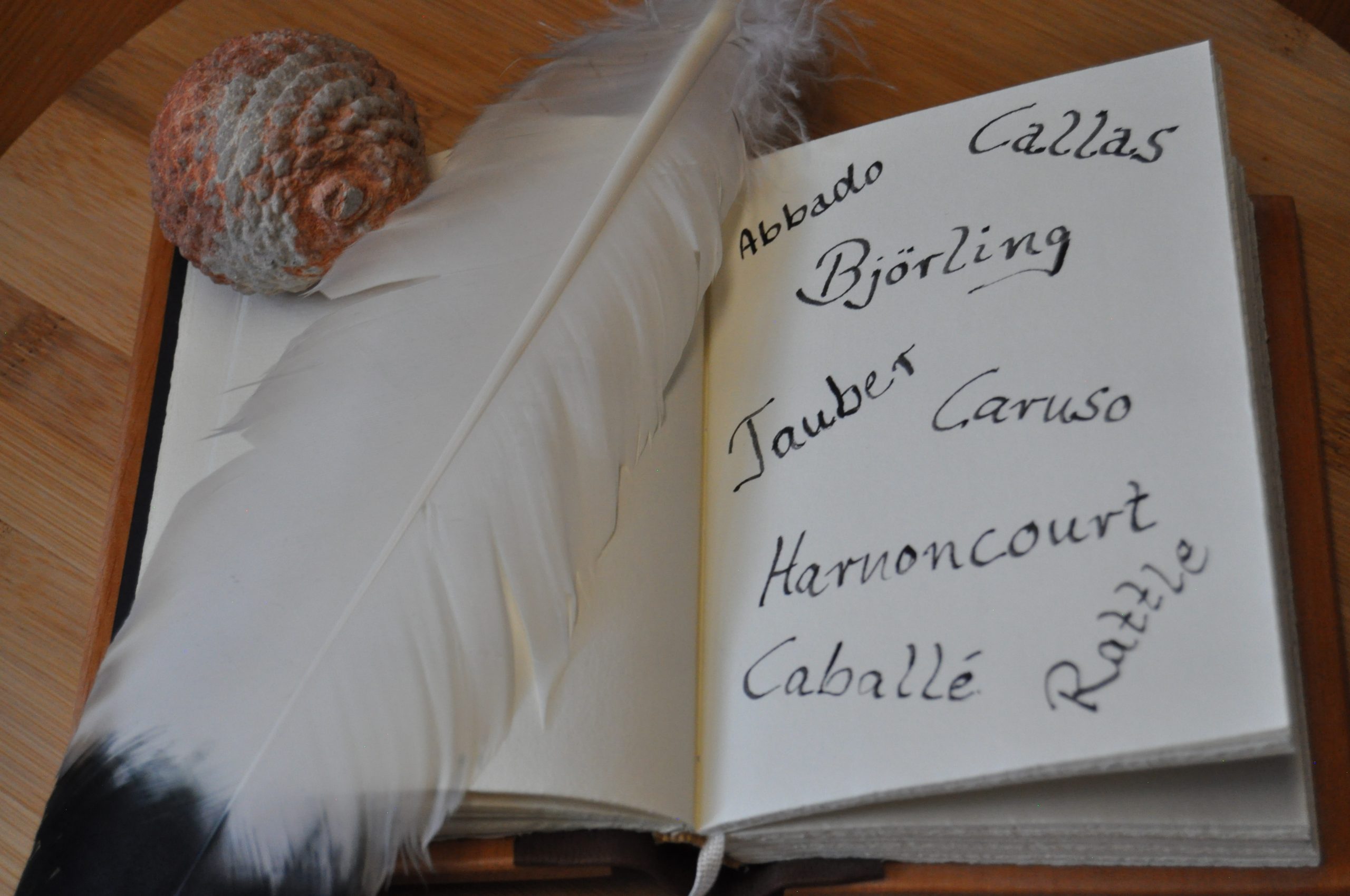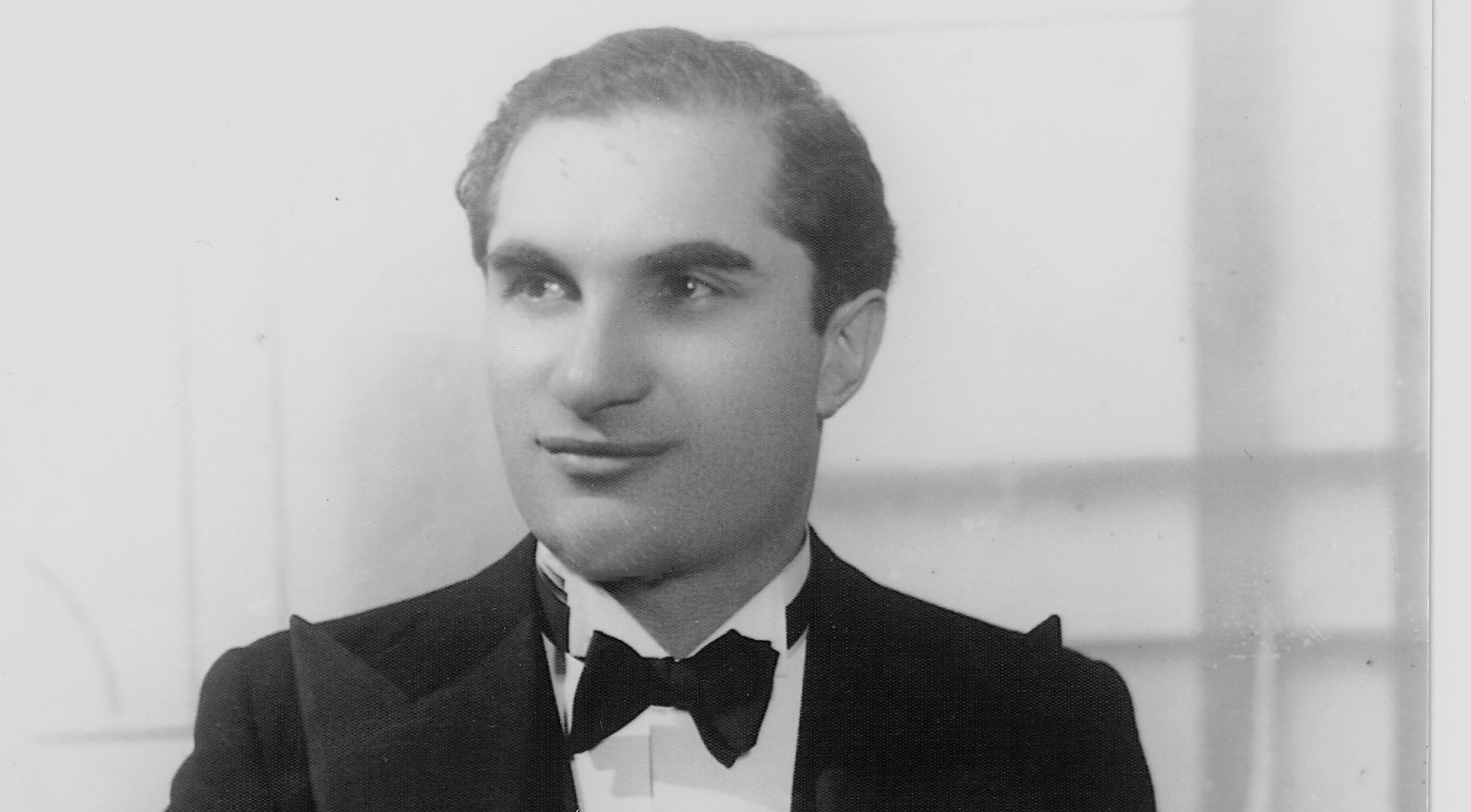Part one
Early in his career, Joseph Schmidt sang roles that pushed other tenors to the limits of their vocal abilities at the height of their careers: Joseph Schmidt was without question one of the most important tenors of his generation, even if he only had a relatively short life.
Throughout his career, Schmidt repeatedly dreamed of being on an opera stage: The fact that he was rarely seen on stage in an opera production was not due to a lack of vocal talent. With his relatively short height, Joseph Schmidt simply did not fit the classic stereotype of the heroic tenor. However, this alleged obstacle, which was repeatedly brought to Schmidt’s attention, spurred the tenor all the more to become a pioneer of a new musical medium: Joseph Schmidt became a pioneer of radio singing.
Home
In his early years, it was Schmidt’s wish to become an actor: In his hometown of Czernowitz, Schmidt advanced to become a local celebrity, partly through productions at the local National Theatre. But even today, an actor with a small body size would have a hard time – Schmidt realised early on that he would probably never be given a chance solely as an actor and concentrated entirely on training his voice.
At the age of 18, Schmidt began his vocal training with Felicitas Lerchenfeld-Hrimaly, one of the most renowned singing teachers in Czernowitz. Schmidt’s mother realised the musical talent that was in her son and supported him in finding his professional path in music. In order to study the art of singing, Joseph Schmidt went to Berlin, in the midst of the age of the Golden Twenties, in which culture in Berlin was celebrating a climax. Immediately after his studies, however, Schmidt had to pause before he could become active as a singer: He was drafted into army service.
During his army service, Schmidt is said to have moved even the most seasoned soldiers to tears with his singing, which eventually led to him being transferred to the military band.
Radio – a new form of culture
At the end of the 1920s, when he had completed his military service, a question arose for Schmidt: How and where did he want to sing? Georg Schünemann, director of the Berlin Academy of Music and at the same time also head of the Berlin Radio Experiment Station, recognised the potential in Schmidt and knew an answer to this question…
Radio was still a relatively new invention at that time: The technology was still in its infancy and was constantly being developed. In the mid-twenties, microphones began to be used in recording technology: In the course of this development, it quickly became apparent which singer was predestined for a microphone job and which singer shone best live on an opera stage. With the invention of recording technology, a new form of musical culture was born: What could previously only be experienced live was now transmitted to the premises of tens of thousands of people and, with the invention of the vinyl record, could even be played on demand. So far, the career path for a young opera singer had always led through opera houses: this had now changed.
The unjustly reviled microphone
Hence on April the 18th, 1929, Joseph Schmidt made his debut with the Berlin radio broadcasting service. He sang the part of Vasco de Gama from the Grand opéra The African by Giacomo Meyerbeer. Especially his interpretation of the aria Land so wunderbar has been preserved for posterity.
The following words come from Joseph Schmidt and explain what distinguishes a microphone recording from a live production:

“The microphone, often unjustly reviled, has a tremendous advantage over the opera stage and the concert podium – it forces not only the performer but also the listener to the utmost concentration. But it also forces the most concentrated performance because, lacking all supporting illusionary possibilities, it depends solely on the acoustic effect.”
Joseph Schmidt in 1932 (quote translated), source: Fassbind, Alfred A.: Joseph Schmidt – Sein Lied ging um die Welt [His Song Went Round the World], 2021 Rüffer & Rub, p. 65
Picture: Joseph Schmidt 1934 in Vienna, by courtesy of the Joseph Schmidt Archive
No matter to which opera house the young tenor Joseph Schmidt would have gone: he would never have achieved great fame as quickly as he did with radio. But for Schmidt it was not just about fame: he was privileged to sing an immensely large repertoire of arias and lieder at a very young age. The range of his artistic activity for radio and vinyl record in Berlin, which lasted barely four years, is only equalled by other singers after decades of professional experience. Schmidt was the first to interpret Giuseppe Verdi’s songs in German translation and did not shy away from the French repertoire – his enormous versatility was his greatest trademark.
A dream becomes reality
The fact that Joseph Schmidt stood in a German radio studio for the last time on 20 February 1933 was mainly due to political circumstances: With the change of regime in Germany, the liberal climate of the Roaring Twenties was a thing of the past.
All the contracts Schmidt had signed in Germany for 1933 had lapsed virtually overnight.
Joseph Schmidt was able to fulfil one last dream in Germany: The tenor, who was by now revered throughout Germany, caught the attention of film director Richard Oswald. Oswald cast Joseph Schmidt in the leading role in the feature film My Song Goes Round the World [Ein Lied geht um die Welt, 1933]. The title song for the film My Song Goes Round the World was written for the tenor by the composer Hans May: in the following decades, the song was interpreted countless times by other opera singers. It is little known that Joseph Schmidt sang the original version of My Song Goes Round the World.
With the film role, the star tenor was able to fulfil his dream of one day making it as an actor. It was not to be the last film in which he appeared.
International fame
With the film My Song Goes Round the World, if not earlier, Joseph Schmidt achieved international fame: after he had enchanted countless listeners as a radio tenor in Germany, Schmidt was now also noticed on the other side of the Atlantic.
But Schmidt did not think of moving to the United States: At first, not only were there no offers to perform in the USA, Schmidt even thought it possible that the political circumstances in Europe would improve again.
From the end of 1933, Joseph Schmidt therefore moved his centre of life to Vienna: the Austrian musical metropolis was the first port of call for numerous exiles who were no longer welcome in Germany. Thus, song poets such as Max Colpet also moved to Austria.
Austrian-born Richard Oswald gave Joseph Schmidt the opportunity to star in another film: In Wenn du jung bist, gehört dir die Welt [When You’re Young, the World Belongs to You, 1934], Schmidt plays the young Carlo, who has a unique singing voice but is condemned by his landowner-boss to do gardening.
It’s true that Joseph Schmidt was forced to turn his back on Germany: However, his work in film opened countless doors for him. Despite all his international fame, however, Schmidt remained deeply attached to European musical culture and especially to his Eastern European homeland, as the next chapter in his life reveals…
Der Bussard expresses its gratitude to Mr Alfred Fassbind, head of the Joseph Schmidt Archive in Rüti near Zurich, for his cooperation.
The standard biographical work on Joseph Schmidt written by Mr Fassbind, published in a revised edition by Rüffer & Rub in 2021, was kindly provided to Der Bussard. The biography served as the main source for the article.
Publication information: Fassbind, Alfred A.: Joseph Schmidt – Sein Lied ging um die Welt [His Song Went Round the World], 2021 Rüffer & Rub
Cover picture: Joseph Schmidt 1932 in Berlin in the studio of Lotte Jacobi, by courtesy of the Joseph Schmidt Archive

 Deutsch
Deutsch Français
Français





